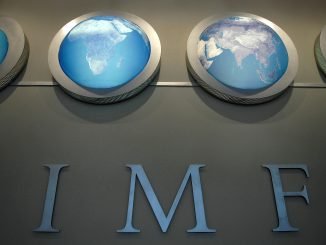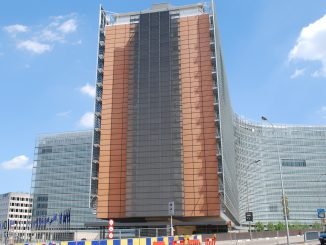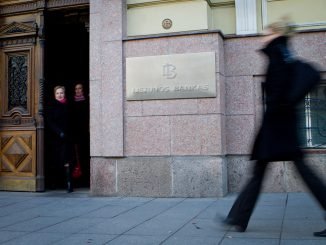
Lithuania’s economic growth revised down for last quarter
Lithuania’s economic growth was lower than initially estimated in the final quarter of 2015, the latest figures from Statistics Lithuania showed on Monday. […]

Lithuania’s economic growth was lower than initially estimated in the final quarter of 2015, the latest figures from Statistics Lithuania showed on Monday. […]

The Lithuanian economy grew at its slowest pace since 2010 last year at 1.6%, but rising business confidence and increasing orders should drive higher economic growth in the year ahead. […]

Demographics will soon be the biggest problem facing Lithuanian society and industry, leading economists have warned, urging Lithuanian politicians to address the massive emigration that has been draining the Lithuanian population for over a decade now. […]

The European Commission is predicting that the Lithuanian economy will grow by 2.9% this year following a lacklustre performance in 2015. […]


Lithuanian economic growth this year has been the slowest among the Baltic countries, but analysts at Danske Bank predict that the country’s gross domestic product growth next year will be faster than in Estonia and, in 2017, will bypass Latvia as well. […]

Lithuania’s economy should grow 2.9% next year, almost double this year’s rate of 1.7%, according to the director of Economics and Financial Stability Service of the central Bank of Lithuania. […]

While average pay in Lithuania has been growing uninterruptedly for some years now, part of the population still have not felt much improvement in their financial lot. […]

Economic recovery in the euro area and the European Union as a whole is now in its third year. It should continue at a modest pace next year despite more challenging conditions in the global economy, the European Commission said. […]


Professional services firm Ernst & Young (EY) has published its latest economic forecast for the euro area. It is projected that Lithuania’s GDP growth will stand at 2.1 percent in 2015 and 3.6 percent in 2016. Meanwhile, GDP growth in the euro area will stand at 1.6 and 1.8 percent respectively. […]


DNB Bank’s chief economist for the Baltic states Jekaterina Rojaka says that shock therapy will be for the better of Lithuania’s economy. […]

On 28 May, the Executive Board of the International Monetary Fund (IMF) concluded the Article IV consultation with Lithuania. It considered and endorsed the staff appraisal without a meeting, the organisation reports. […]

The European Commission (EC) announced in its Spring 2015 Economic Forecast that Lithuania’s gross domestic product (GDP) is expected to grow by 2.8 percent, whereas domestic consumption should be the major factor determining economic growth. […]

The Bank of Lithuania forecasts that the domestic demand-driven Lithuanian economy will continue growing, albeit at a slower pace than previously expected. The worse outlook for the Russian economy, determined by persisting geopolitical tensions and falling oil prices, will have an essential influence on this change, the central bank said. […]

“We are pleased that the revised GDP for 2014 compared to 2013 increased by 3 percent rather than by 2.9 percent as it was announced in the preliminary estimates. The higher growth was driven by the growth of the construction industry, also, the Government’s decisions regarding housing renovation under the new programme,” Lithuanian Prime Minister Algirdas Butkevičius said on Monday, referring to revised data from Statistics Lithuania. […]

According to the calculations carried out by Danske Bank, falling import in Russia will cost Lithuanian economy EUR 0.5 billion in nominal value in 2015, i.e. more than projected earlier. Therefore, Danske Bank has reduced Lithuania’s GDP growth estimate from 2.7 to 2.5 percent. In 2016 GDP growth should return to 3.1 percent, the latter estimate has not been changed. […]

Lithuania’s economy is expected to maintain growth of 3.0 percent in 2015, despite a fall in exports to Russia. Domestic demand is set to remain the main growth engine, as employment and real disposable incomes rise. Inflation stays low and public finances improve slightly, the European Commission said in a statement. […]

Professional services firm EY (Ernst&Young) forecasts that Lithuania’s GDP will grow 3.6 percent in 2015. The adoption of the euro, reduced financial risks and cheaper borrowing will allow the Lithuanian economy to grow three times faster than the euro area average, whereas in two years economic growth can reach a 5-percent rate. […]
Copyright © 2026 | MH Magazine WordPress Theme by MH Themes